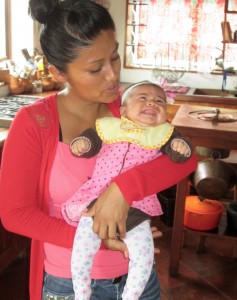A longtime student of mine in Taos, a retired psychology professor and psychoanalyst with sharp wit, likes to quip in class, “Well, if it’s not one thing, it’s your mother,” because so many of his fellow writing students (mostly female) write about their mothers – or their own whack at motherhood. I’ve noted from the many personal essays shared in class that the mother-daughter relationship seems especially complex, while at the same time providing grist for both aspiring and seasoned writers. I too am one.
I’ve been thinking a lot about my mother lately. If she were alive and lucid, she would have celebrated her 99th birthday last week, still insisting, as she used to do every year on her birthday, that she was 36. My mom has been dead for over 30 years now, and I miss her deeply. We were pals, respectful of each other’s enormous differences, admiring of each other’s strengths and accomplishments. My memories of her are good, almost glowing. But my three siblings – an older brother and two younger sisters – evidently saw her differently. Their memories are not so rosy.
How can this discrepancy be? I wonder. A different roll of the dice? A different configuration of stars at birth? Not being a psychologist, I don’t have social-scientific answers. I only have theories. Divorce, I theorize, has the potential to shatter a family like a china plate dropped onto a terra cotta floor. Worse still, in my view, miserable, unloving marriages that “stay together for the sake of the children,” can force kids to take sides, align themselves with one warring parent or the other. The home becomes a war zone. I, for one, feel as if I’ve lived through World War III, and I fought in the trenches on my mother’s side.
The other day a young Mexican woman, the sister of a friend, stopped by this casa to show me her darling baby daughter. I reached for the baby and held her briefly, until she became fussy and I handed her back to her mom. Then I grabbed my camera:

I wondered what kind of relationship this little girl will grow up having with her mother. I’m guessing it will be good. Here in predominantly Catholic Mexico, where divorce is almost unheard-of and family ties are inordinately strong, I suspect most mothers and daughters get along quite well, working side by side to keep the family “machine” running smoothly. Babies, I’ve observed, are held close to their mama’s (or daddy’s) body until they’re old enough to walk; toddlers, held by their uplifted hand by their mom (or dad or grandma or grandpa), gamely climb the steep stairways and alleyways of Guanajuato (no strollers here!), strengthening their little limbs as well as their family bonds of love, trust, and connection.
But what if those bonds are broken, by, for example, child snatching and Parental Alienation Syndrome (PAS), which are, tragically, too prevalent in the United States? Can the bond ever be repaired? I wish I knew that answer.
Many years ago I wrote a memoir (Somewhere Child, Viking Press, 1981), which, though excruciatingly painful to write, did some good in the world. It helped to expose the evils of child snatching and raise consciousness about this issue at a time when it was not well known or understood. I’m told it even helped to change laws.
In that book I grappled with the question of whether the mother-daughter bond between my daughter and me could ever be restored. Decades have now passed, and I’m still grappling. I’m sure she is too.
